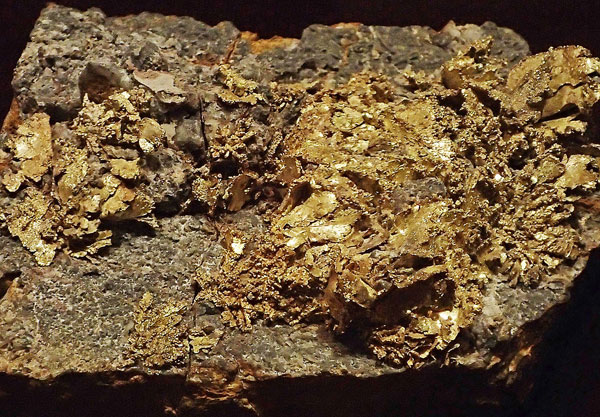
May 15, 2019, Boise State Public Radio
A foundation is established with corporate money to benefit communities surrounding the company’s new project. Sounds like the common birth of a foundation—standard, philanthropic, and harmless. But this brand-new organization has caused a conflict of interest brouhaha.
Midas Gold, headquartered in Canada, owns what’s considered a historic gold mine in Idaho in a region that has been mined in the past. A recent study indicates the potential for a large, open pit, high-grade mine that could be worked for a long time. Permits have been filed, along with the required Plan of Restoration and Operations.
Still, notably, the results of an environmental impact study, due out in May, have been delayed until December. As Boise Public Radio has reported, “Midas Gold has said that joining the community agreement is not necessarily an endorsement of the mine. Critics of the agreement say the mining company should’ve waited for the release of an environmental impact statement before asking communities to sign on.”
Notably, two communities approached are not among the signers of community agreements; the City of McCall refused to sign the agreement ahead of the environmental impact statement, and the request was withdrawn from Valley County commissioners. In both cases, residents appeared to be opposed to signing on without an impact statement; it also seemed as though the community agreement specifically established a conflict of interest for decision makers.
What’s the conflict? To make a long story short, company determined it would be beneficial to establish a foundation to assist the cities and counties nearby, which would certainly create positive spin. The Stibnite Foundation was base funded with $1 million in cash and about $900,000 in stock from Midas. Another tranche of money will be donated when the permits are all in place. After the initial two or three years, the donations will be based on company success—one percent of annual net profits over the life of the mining project, which is estimated to be 12 years. Midas Gold’s Idaho president, Laurel Sayer, said the sum would be at least $500,000 annually, with a final gift of $1 million at the end of the project in order to build an endowment.
Sign up for our free newsletters
Subscribe to NPQ's newsletters to have our top stories delivered directly to your inbox.
By signing up, you agree to our privacy policy and terms of use, and to receive messages from NPQ and our partners.
Stibnite Foundation’s board will contain members of those eight communities that signed a community agreement. The company has been philanthropic in the region, providing $472,000 to local needs.
The deputy attorney general, Brian Kane, has warned attorneys in Valley and Adams County of potential conflicts of interest.
“The Foundation board is made up of representatives of the cities and counties, and the cities and counties are the direct beneficiaries of the Foundation. A question arises whether this is a permissible situation to be in for a county or city where it has a vested financial stake in the profitability of a company,” Kane wrote.
He goes on to add that cities and counties could find themselves in an ethical quandary, “since they are the beneficiaries of the foundation and thus have financial incentive to see the project be successful.”
Private foundations established by for-profit companies have this inherent conundrum: The companies were generous in starting a foundation with their dollars, but there must be a clearly defined line the foundation does not cross to the company side, or they are breaking the self-dealing regulations. Foundations may not support or market the for-profit company that established the foundation; they may not reimburse expenses of a disqualified person or make “agreements to make payments of money or property to government officials.” A disqualified person is “any person who was in a position to exercise substantial influence over the affairs of the applicable tax-exempt organization at any time during the lookback period. It is not necessary that the person actually exercise substantial influence, only that the person be in a position to do so.”
That last sentence cannot be ignored. The regulation is broken if a person is in position to exert influence.—Marian Conway













